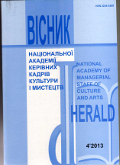TNK in the legal and political measuring of world process
DOI:
https://doi.org/10.32461/2226-3209.4.2013.138005Keywords:
TNK, high-tech, investments, international political process, employment of population, international economic law, stateAbstract
Considerable influence on modern international political and economic relations is carried out by international organizations and especially multinational corporations. Globalization strengthened their power perceptibly. Neither state nor international law while yet unable fully to control and regulate their activity within the framework of national or international right. Moreover, an international law does not yet know normative determination of concept of multinational corporation even, not to mention about normative fixing of principles of their activity and imperative adjusting . If the amount of intergovernmental organizations exceeds the number of the states, the amount of international ungovernmental organizations exceeds the number of intergovernmental organizations far. It follows from here, that ungovernmental organizations simply play an important role in life of international concord. Herein easily to make sure, if to remember, that international ungovernmental organizations began to arise up at the beginning of era of point-of-sale capitalism, when merchants created on your own economic and legal spaces, often as the proper reaction on the action of political power. So an international law, having regard to multiplicity of sources of right, enables to formulate determination of international ungovernmental organization and, consequently, ungovernmental organization of economic character. It is possible to consider that international ungovernmental organizations – it formed on initiative of physical or legal persons of association of members of different state belonging, realizations of international activity of noncommercial character created with a purpose and provided with status of legal entity after a national (but not international) right. Sometimes there is a question, whether there is not certain contradiction in because international ungovernmental organization must, from one side, carry out activity of noncommercial character, and from other – to answer the "economic setting". This contradiction is taken off, if under a term "noncommercial activity" to understand activity in which, clearly, the receipt of direct income is forbidden by both certain organization and its members, and at the same time it is allowed to carry out defense of collective interests of members. International ungovernmental organization of economic character shows by itself the original group of pressure, that has for an object to protect interests of certain international economic circles from the states or intergovernmental organizations. In this sense noncommercial activity does not mean activity without certain interest. Speaking about international ungovernmental organizations of economic character, it costs to remember international professional associations: international associations of producers or users, international federations of trade unions of office workers or workers, sporting federations or International chamber of commerce, which plays an important role in the sphere of international commercial arbitration, formulating norms and consuetude's of international trade. International ungovernmental organizations of economic character play a noticeable role in development of international economic law. International ungovernmental organization of economic character is not an operator in international economic relations, as does not get a direct income from the activity. In that time it shows by itself one of regulator mechanisms in international economic relations, as more frequent all takes part (straight or mediated) in the process of creation of norms of international economic law, carried out intergovernmental organizations.Downloads
Published
Issue
Section
License
Authors who publish with this journal agree to the following terms:
1. Authors retain copyright and grant the journal right of first publication with the work simultaneously licensed under a Creative Commons Attribution License International CC-BY that allows others to share the work with an acknowledgement of the work's authorship and initial publication in this journal.
2. Authors are able to enter into separate, additional contractual arrangements for the non-exclusive distribution of the journal's published version of the work (e.g., post it to an institutional repository or publish it in a book), with an acknowledgement of its initial publication in this journal.
3. Authors are permitted and encouraged to post their work online (e.g., in institutional repositories or on their website) prior to and during the submission process, as it can lead to productive exchanges, as well as earlier and greater citation of published work (See The Effect of Open Access).


